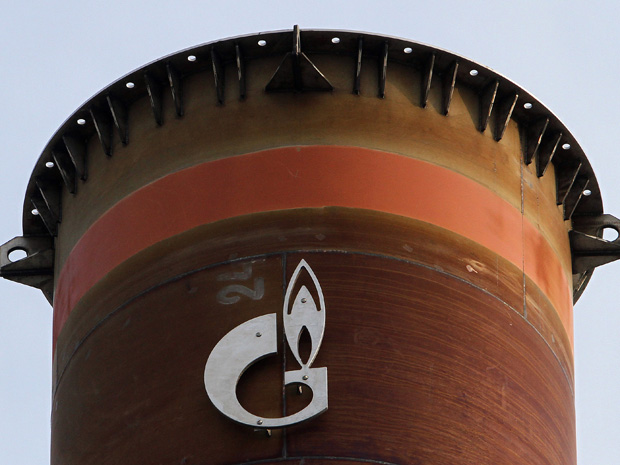MOSCOW — The Kremlin’s ambition of turning Gazprom, the world’s biggest gas company, into a global energy titan is undermined by Soviet-style thinking, poor management and corruption, according to leaked U.S. diplomatic cables.
Russian Prime Minister Vladimir Putin and his protege, former Gazprom board chairman Dmitry Medvedev who is now Russia’s president, have tried to use Gazprom to claw back some of the international clout which Moscow lost after the Soviet Union collapsed in 1991.
But leaked diplomatic cables from U.S. Ambassador to Moscow John Beyrle paint Russia’s biggest company as a confused and corrupt behemoth still behaving like its predecessor, the Soviet Ministry of Gas.
"Gazprom is what one would expect of a state-owned monopoly sitting atop huge wealth — inefficient, politically driven, and corrupt,” Beyrle wrote in a 2009 cable published by German magazine Der Spiegel on its http://www.spiegel.de website.
Gazprom spokesman Sergei Kupriyanov declined immediate comment on the documents, part of the 251,287 U.S. embassy cables released to news organisations by WikiLeaks.
The leaked cables cast Putin as Russia’s "alpha-dog” leader who allows a venal elite of corrupt officials to siphon off cash from energy sales, comments Russia’s leadership have dismissed.
Moscow-based Gazprom supplies a quarter of the European Union’s gas and has plans to increase its share of the European and Asian gas markets with vast pipeline projects that require tens of billions of dollars in investment.
During his presidency, Putin — helped by a then relatively unknown Kremlin official, Dmitry Medvedev — moved to reassert state control of Gazprom, appointing ally Alexei Miller as CEO.
The state-controlled company became an emblem of a resurgent Russia, snapping up assets at home and abroad, borrowing heavily and disrupting gas supplies to Europe in winter rows with former Soviet republics such as Ukraine.
But the economic crisis battered Gazprom and its market capitalisation is now just over US$150-billion, less than half its peak of more than US$350-billion reached in 2008.
Gazprom Strategy
The U.S. cables repeat the view of many Western and Russian analysts that Gazprom’s management misjudged the future by betting that soaring European demand would continue to support a seller’s market.
Instead Gazprom has faced demand destruction in Europe since 2009 as the global economic crisis forced European customers to slash consumption. They also often switched to liquefied gas from the Middle East, whose producers turned out to be much more flexible in their pricing policies than Gazprom.
"Gazprom was simply unprepared for the inevitable levelling off and current decline in European gas demand,” the U.S. ambassador said in the cables, adding that Gazprom misjudged the impact of liquefied natural gas (LNG) imports to Europe.
"Gazprom will have to cope with massive new volumes of LNG on the global market from projects already underway in Qatar and elsewhere,” he wrote.
Gazprom has repeatedly said it was keen to expand on U.S. gas markets but had to scale back its ambitions to supply liquefied gas (LNG) across the Atlantic as the United States boosted its own shale gas output and cut imports of LNG.
Gazprom is still clearly viewed as an instrument of Kremlin social policy, according to Beyrle, who cited a Gazprom executive as saying that the company’s first two priorities were to provide reliable and affordable gas to the domestic population and to "fulfil its social obligations.”
"A Gazprom that behaved more like a competitive global company would probably find a new path to growth more quickly,” Beyrle wrote.
"But Gazprom is not a competitive global company, despite sitting on the world’s largest gas reserves. Gazprom is a legacy of the old Soviet Ministry of Gas and it still operates much the same way,” he wrote.
© Thomson Reuters 2011
http://www.financialpost.com/news/Gazprom+confused+corrupt+cables/4068885/story.html






















